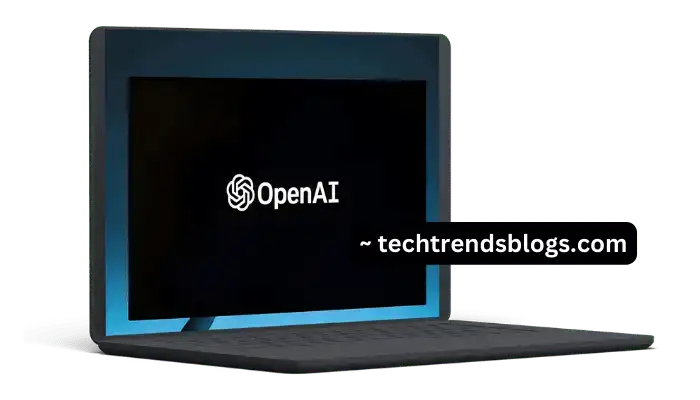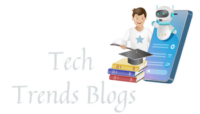Competing in a market that Google has long been doing battle alone, OpenAI today announced SearchGPT: an AI-based search engine with the ability to fetch information from across internet pages instantly. The Thursday afternoon move also thrusts the AI giant in direct contest with its key investor, Microsoft’s Bing search engine and a bevy of startups that employ related technologies such as Perplexity — developers of an Amazon co-founder Jeff Bezos-backed AI chatbot specializing on searches enabled by massive Nvidia-powered models. Alphabet, the parent company of Google saw its shares close 3% lower on Thursday following OpenAI’s revelation.
New Kid In The Search Market
OpenAI entering the search market could shake up online searching as we know it, with its implementation of SearchGPT. The new tool, which is still a prototype for now, is also in testing phase with limited set of users and publishers as well. Users can be the first to experience SearchGPT by signing up for it. In the future, OpenAI aims to integrate just the right aspects of SearchGPT into ChatGPT in order to improve its quality drastically.

“OpenAI and Perplexity’s AI-powered search tools re-affirm engagement as a content play making search stand relevant, but there is significantly more competition in the model which pressures Google to become better at its own game,” Canaccord Genuity analyst Kingsley Crane wrote. This point of the statement shows how AI-driven search engines may be able to impact the hegemony that Google has managed for this long.
SearchGPT Summarized Search Results Overview
- Summarized Search Results: When a user searches, the summarized search results together with relevant source links make it easy for users to get information without scanning through too many reference sources.
- Conversation: With conversational experience, users can ask follow-up questions and receive responses in context unlike the more word-based search process.
- Publisher Collaboration: OpenAI offering tools for publishers to control how their assets appear in SearchGPT results. ICYMI: This round featured news from OpenAI, which launched the first human collaboration to replace Welker with a paid publishing partner in News Corp and The Atlantic.
Market Dynamics and Competition
- Market share of Google: Google takes a dominant position in the search engine market with 91.1% as of June, according to Statcounter (2019).
- Competition Landscape: Besides Google, SearchGPT will need to rival other upcoming AI-powered search services like Bezos and Nvidia-backed Perplexity. Moreover, Bing from Microsoft is another significant rival with OpenAI (despite the fact it isn’t a proper search engine).
SearchGPT: Search Integrated with GPT (OpenAI)
Technological Integration and Innovation
- Context Window Expansion: The context window of SearchGPT has been expanded to a quadruple sized 32K tokens, making it feasible for extended conversational complexity. More detailed conversations and questions can be asked without breaking context.
- Instant Access: SearchGPT provides not only a means to access information in real-time (excited users can quickly ask the model for insights), but also up-to-the-second info.
- Next: OpenAI aims to incorporate the most powerful components of SearchGPT into its widely-used AI chatbot ChatGPT. Code Originally Published on Mono Novel
Industry Impact & Roadblocks
- Legal Challenges: New AI-powered search providers like Perplexity are already in legal hot water with publishers from Wired, Forbes, and Condé Nast challenging the legality of their new technologies.
- Publisher Relationships: SearchGPT hints at deeper publisher collaboration with AI developers, as evidenced by content licensing deals announced recently with the likes of Associated Press and News Corp. – & Axel Springer.
In Conclusion
OpenAI launching SearchGPT is a major milestone in the search engine field. By allowing publishing-collaborative data and interaction with real-time information, it presents a serious threat to its longstanding domination by Google while delivering the partners of changing possibilities for AI personal results search. And that as the market changes, we may see more innovation and better search experiences for users.
FAQs
Q: What is SearchGPT?
A: SearchGPT is an OpenAI-developed AI-powered search engine, that aims at delivering up-to-date info from the internet with digestible and interactive responses.
SearchGPT vs. Google: How do they compare?
A: SearchGPT provides summarized SERPs with links to source, interactive follow-up questions (for a full retriever), and more tools for publisher partnerships – essentially one of many features that may lead Google-like search group where the company holds market dominance.
What is the context window?
Q: In SearchGPT, the context window has been increased to 32K tokens which means it is able to carry on longer conversations – how will this be helpful?
Who are the tech partners of SearchGPT?
Q: SearchGPT has News Corp and The Atlantic on board as publishing partners, demonstrating that publisher collaboration with OpenAI is continuing to examine new paths.
How does SearchGPT work for real-time information?
A: SearchGPT consults live information and it is often a better alternative for users who need quick, up-to-date data.
